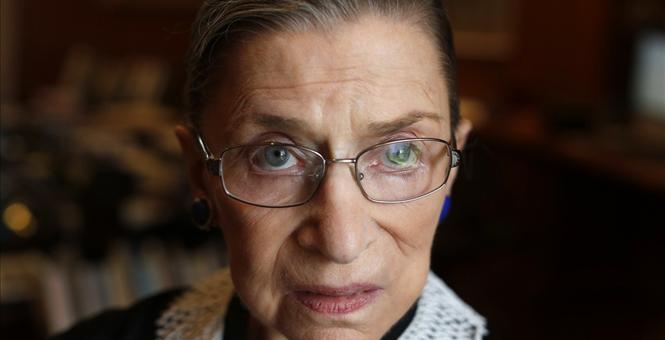First, Planned Parenthood was accused of “systemic racism” by hundreds of its own employees. Then came accusations of racism against NARAL and the National Organization for Women (NOW), both prominent pro-abortion groups.
Now, one of the leading icons of pro-abortion feminism, U.S. Supreme Court Justice Ruth Bader Ginsburg, also is being accused of racism and white supremacy – based on the common anti-racism arguments of the day.
Writing at National Review, Ed Whelan pointed out that Ginsburg has hired only one Black clerk out of more than 100 who have worked for her during her 27 years on the Supreme Court.
Additionally, Ginsburg did not employ any Black clerks, interns or secretaries during her 13 years on the circuit court in Washington, D.C., according to U.S. Senate records from her confirmation.
Whelan noted that, according to popular anti-racism arguments in books like “How to Be an Antiracist” by Ibram X. Kendi, “any racially disparate outcome that disfavors blacks is compelling evidence of white supremacy.”
And Ginsburg’s actions appear to fit that description, Whelan wrote.
LifeNews depends on the support of readers like you to combat the pro-abortion media. Please donate now.
“I wonder, then, how the same folks who embrace, or at least pay lip service to, this antiracism ideology can also celebrate Justice Ruth Bader Ginsburg,” he asked.
Even if people do not accept this new argument about racism, there are other things that also suggest Ginsburg’s views are discriminatory.
In 2009, Ginsburg caused a stir when she made comments about Roe v. Wade that hinted at the eugenics roots of abortion advocacy.
“Frankly I had thought that at the time Roe was decided, there was concern about population growth and particularly growth in populations that we don’t want to have too many of,” Ginsburg told the New York Times.
Then, in 2014, she told Elle magazine something similar, “It makes no sense as a national policy to promote birth only among poor people.”
Again in 2019, she brought up poor women as a reason for her support of abortion:
Ginsburg noted that poor women are the only people being affected by lack of access to abortion.
“One of the things that happened after Roe v. Wade is that women wanted to be able to control their own destiny. They won, so they retreated. And the other side geared up, and we have the situation that we have today,” Ginsburg said. “[People should] care about it the way they did when many women didn’t have access, didn’t have the right to choose. It is so obvious that the only people restricted are poor women. One day, I think people will wake up to that reality.”
Though abortion activists portray such talk as sympathetic, their solution is not to help struggling women out of poverty but to abort their unborn babies.
Abortion advocacy and discrimination often go together because they are very much alike. Both treat certain groups of human beings with less value than they deserve. Both push the idea that it’s ok to treat some people badly just because of their race, their level of development, their culture or their income level.
Frequently, abortion activists try to link pro-life advocates to racism and white supremacy, seeking to misrepresent and disparage the movement. But pro-lifers are the ones trying to end discrimination toward babies in they womb. And for decades, they have been working to expose the truth: The biggest discrimination problem in America is inside the abortion industry and the movement that supports it.








